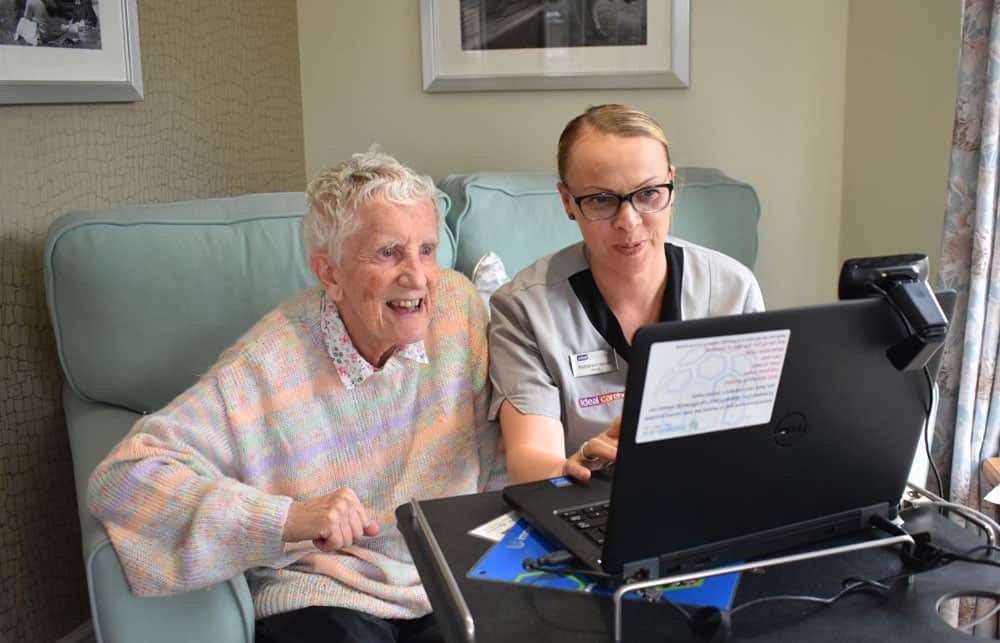Improved take-up of telemedicine for dementia patients could significantly reduce pressure off healthcare professionals, new research unveils

According to new research, expanded telemedicine services for dementia patients could significantly reduce local healthcare costs and ease pressure off healthcare professionals.
These insights come from Immedicare, a collaboration between Airedale NHS Foundation Trust and Involve Visual Collaboration offering constant telemedicine services to hundreds of UK care homes, and showcases how telemedicine is delivering significant cost and resource savings across the UK.
Additionally, better take-up of telemedicine could also save the NHS billions of pounds in care costs, says Immedicare.
The new insights show that, on average, almost two-thirds of care cases using Immedicare’s telemedicine services do not require onward referral to a local healthcare professional and nine out of 10 patients remain in their place of residence after their consultations.
Furthemore, the figures show that Immedicare’s service is helping to reduce ambulance conveyances, A&E attendance activity, non-elective admissions and is also reducing both in and out of hours GP referral numbers.
David Butler, Commissioning and Development Lead for Immedicare, commented: “Not only are our telemedicine services helping dementia patients receive excellent care and support in the familiar surroundings of their care homes – which is key for many who find hospitals challenging environments – but we’re also helping to reduce the strain on local healthcare providers…and we can prove it.
“With 60 per cent of people receiving home care services living with dementia – and an estimated two million people expected will be living with dementia by 2050 – there is an obvious and growing need to expand these services across more UK care homes.”
As a result of its research, Immedicare is urging healthcare decision-makers to consider trialling telemedicine systems to reduce costs on the healthcare system and ease pressure off healthcare professionals.
“Many of the patients we serve, currently around 20,000 in the UK, are living with dementia so telemedicine really does have the power to transform the care they receive, whilst delivering the costs and resource savings health care services are crying out for,” David continued.
“Telemedicine isn’t the single solution to the NHS’s challenges, but these results show it can bring very positive benefits, generate significant savings and help reduce the strains we know exist on the frontline of healthcare in this country.”

